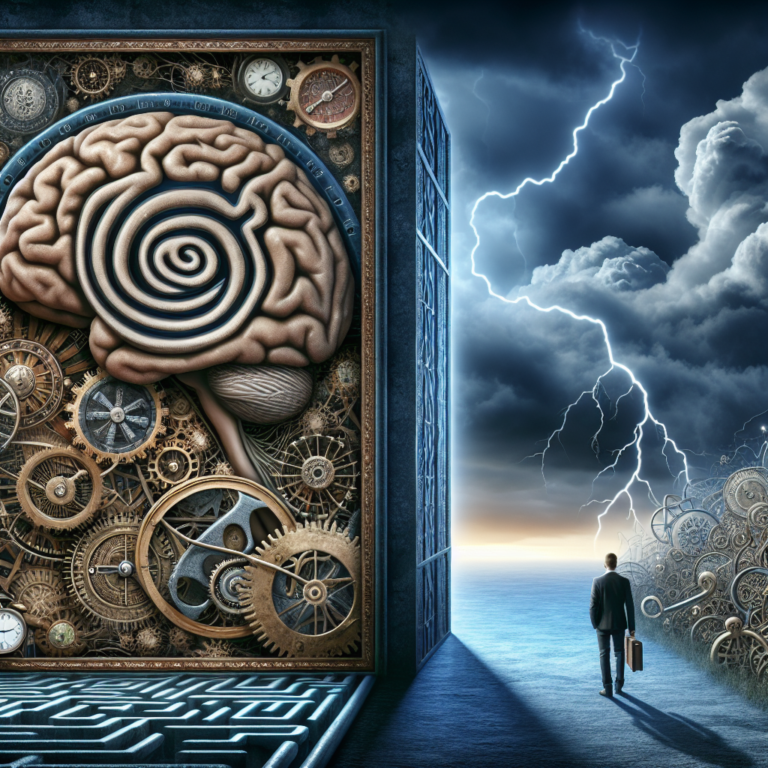
Introduction
Imagine walking through a bustling market in Morocco, the vibrant colors, chaotic symphony of sounds, and the mingling of aromas shaping your understanding of the world. In stark contrast, picture yourself sitting in a quiet coffee shop in Finland, where the minimalist design echoes a culture of simplicity and introspection. These contrasting experiences reflect how culture deeply influences our social cognition—our processes of perception, interpretation, and interaction with others.
Understanding Cultural Influences on Social Cognition: A Global Perspective is essential in today’s interconnected world. As globalization continues to blur geographical boundaries, the ability to navigate diverse social landscapes becomes increasingly significant. Our cultural upbringing shapes not just our behaviors but fundamentally influences how we think, feel, and relate to others across the globe.
In this article, we delve deep into how varying cultural frameworks affect social cognition worldwide, drawing on case studies and real-world applications that highlight this fascinating interplay.
What is Social Cognition?
Before we explore the cultural influences, let’s clarify the concept of social cognition. Social cognition refers to the mental processes that allow individuals to understand and navigate the social world. This encompasses how we perceive others, form impressions, and interpret social signals.
The Role of Culture in Social Cognition
Culture acts as the lens through which we view the world. It encompasses values, norms, traditions, and social practices, all of which shape how individuals interpret social cues.
Cultural Dimensions Theory
One prominent framework for understanding cultural differences is Hofstede’s Cultural Dimensions Theory, which identifies key dimensions along which cultures can be compared:
- Individualism vs. Collectivism
- Power Distance
- Uncertainty Avoidance
- Masculinity vs. Femininity
- Long-term vs. Short-term Orientation
- Indulgence vs. Restraint
Each dimension influences how social cognition operates within a given culture.
Case Studies
1. Individualism vs. Collectivism: A Study of the United States and Japan
A landmark study by Markus and Kitayama (1991) illustrated the differences between individualistic and collectivistic societies. They found that Americans, raised in a culture that celebrates autonomy, tend to view themselves as independent entities. In contrast, Japanese individuals, who hail from a collectivist culture, see themselves in relation to others.
Analysis: This difference not only alters self-perception but also affects how individuals process social information. For instance, Americans often attribute behaviors to personal traits, while Japanese people may consider contextual factors more heavily.
2. Power Distance: Respect in Hierarchical Societies
In cultures with high power distance, such as many Asian nations, social cognition is influenced by the perceived authority of others. A study in India showed that people are less likely to question authority figures compared to their counterparts in Scandinavian countries.
Analysis: This reflects how authority shapes interpersonal communication and social interactions, highlighting the cultural influences on social cognition in hierarchical societies.
3. Uncertainty Avoidance: Navigating Ambiguity
Countries with high uncertainty avoidance institutions, like Greece and Portugal, often exhibit a strong preference for rules and predictability in social contexts. A recent study showed that communication in these cultures tends to be more formal and less ambiguous.
Analysis: In contrast, cultures with low uncertainty avoidance, such as Singapore, are more open to improvisation and flexibility in social interactions, showcasing yet another layer of cultural influences on social cognition.
4. Masculinity vs. Femininity: Gender Roles
Research comparing masculine cultures like Italy and feminine cultures like Sweden revealed notable insights into social cognition. In masculine societies, competitive behaviors and assertiveness are highly valued, while feminine cultures prioritize care and cooperation.
Analysis: These distinctions affect how individuals perceive social roles and responsibilities, indicative of profound cultural influences on social perception.
5. Long-term vs. Short-term Orientation: A Study in China
A study focusing on business practices in China demonstrated that long-term orientation influences behaviors towards patience and foresight in social and professional contexts. This stands in stark contrast to more short-term oriented cultures, where immediate results are prioritized.
Analysis: Here, cultural norms dictate cognitive approaches to relationships and decision-making processes, emphasizing the necessity of a global perspective on social cognition.
The Global Perspective: Unifying Threads
While these case studies highlight differences, we can also identify unifying threads across cultures. Despite distinct social frameworks, many cultures exhibit a shared desire for social connection, empathy, and understanding.
Cultural Adaptation in Globalization
As cultures intertwine through globalization, individuals increasingly engage with diverse perspectives, thus reshaping social cognition. Adapting to this dynamic environment necessitates awareness of cultural influences on cognition.
Table: Summary of Cultural Dimensions and Their Effects on Social Cognition
| Dimension | High Level Effects | Low Level Effects |
|---|---|---|
| Individualism | Independence in thought, personal attribution | Collective interdependence, situational attribution |
| Power Distance | Deference to authority, formal communication | Equality, casual communication |
| Uncertainty Avoidance | Preference for predictable environments | Openness to ambiguity and change |
| Masculinity | Competitive spirit, assertive behaviors | Cooperative spirit, relational cognition |
| Long-term Orientation | Patience, vision for the future | Urgency, instant gratification |
What Makes Cultural Influences on Social Cognition Universally Relevant?
Understanding how culture informs social cognition equips us with the tools to enhance communication and foster relationships across diverse settings. Whether in personal life or professional environments, recognizing these influences leads to more effective interaction and collaboration.
Conclusion
Cultural Influences on Social Cognition: A Global Perspective invites us to see the world through a multifaceted lens. As we share experiences across cultures, we can learn from each other, enhancing our understanding of social dynamics. By cultivating awareness of these influences, we create pathways toward empathy, resilience, and collaboration globally.
Call to Action
Embrace diversity in your social interactions. Consider cultural influences when navigating relationships, be it personal or professional. Let’s foster a more inclusive world, where understanding and empathy transcends borders.
FAQs
1. How does culture influence our perception of social cues?
Culture shapes what we consider acceptable social norms, impacting how we interpret gestures, facial expressions, and communication styles.
2. Can understanding cultural differences improve my social skills?
Absolutely! Recognizing cultural influences on social cognition enhances your ability to connect with diverse individuals, fostering effective communication.
3. What role does globalization play in social cognition?
Globalization introduces us to varying cultural perspectives, enriching our social cognition and encouraging adaptability in diverse interactions.
4. How can businesses benefit from understanding cultural influences on social cognition?
By recognizing cultural differences, businesses can enhance teamwork, improve customer relations, and create products that cater to diverse target audiences.
5. How do cultural influences affect conflict resolution?
Culturally rooted beliefs can shape approaches to conflict. Understanding these influences helps in navigating disputes and achieving resolution effectively.
As we journey through the complexities of human interaction, let’s harness the power of cultural awareness, transforming social cognition into a bridge that unites us all.













